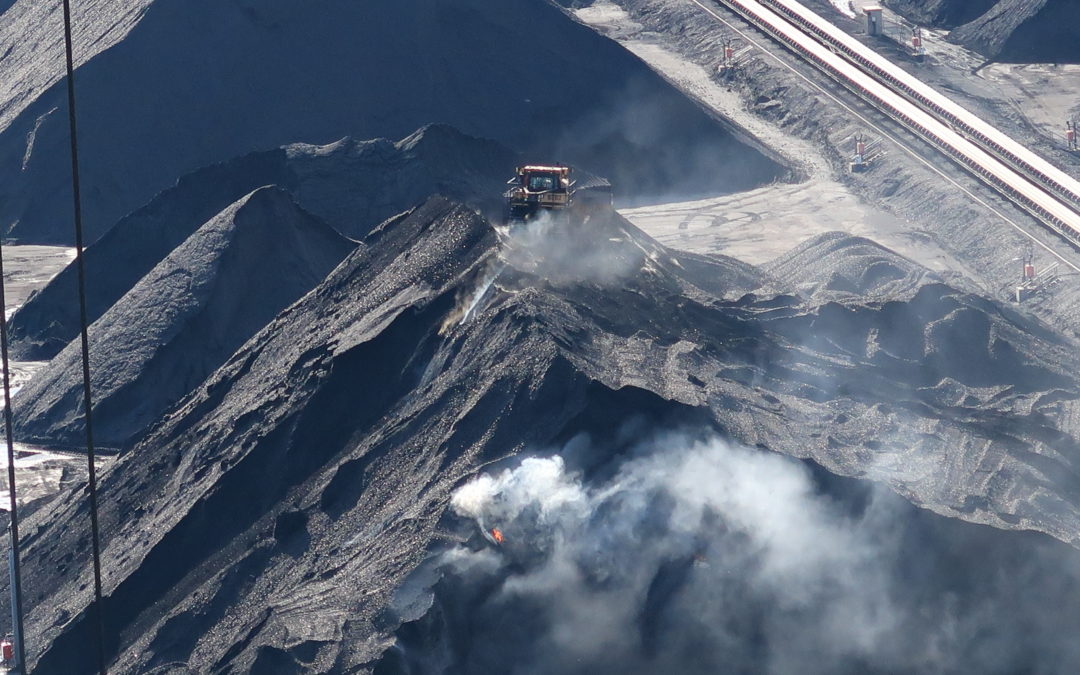After the government promised in February that state-owned companies would stop buying coal from Russia, following protests by Polish miners, firms have been switching to Polish supplies. These are, however, more expensive, reports Business Insider Polska.
The consequence has been further increases in energy generation costs, as Poland relies on coal to produce around 80% of its power, the highest figure in the European Union. Yet at the same time, Poland’s ailing coal sector continues to struggle, as overall sales drop and unsold coal heaps up.
State-owned companies in Poland imported 224,000 tonnes of coal for electricity generation and 451,000 tonnes of coking coal in the first quarter of 2020, reported Jacek Sasin, the minister for state assets. This is much less than the total of 1,088,000 tonnes in the same period last year.
This has created an additional burden for state-owned energy companies, which were already struggling with higher EU emissions costs as the bloc seeks to shift towards greener power sources, writes Business Insider.
Whereas coal prices are falling globally, they remain higher in Poland. Elsewhere in Europe, the current price is around $50 per tonne, while in Poland it is over 40% higher, at $71.
Despite world coal prices falling more than a quarter and coal power production decreasing, the state-owned PGE energy group spent 192 million zloty more on hard coal in the first quarter of 2020 than it did in the same period last year.
Due to rising prices of carbon emissions permits, the company also spent 650 million zloty more on permits, despite cutting its emissions by over 5%.
This is soon likely to affect energy prices, reports Business Insider. In January, Sasin promised that the government would compensate “each Polish family” for increasing electricity costs this year. He blamed the EU for “imposing extra costs”.
Last year, the government froze electricity prices with a special regulation, and energy providers were subsidised with public money
That promise was followed in February by Sasin’s pledge to stop imports of Russian coal. These had previously been increasing – reaching their highest ever annual level in 2018 – prompting protests from Polish miners, who feared cheaper foreign coal would put them out of work
At the time of the announcement, Sasin admitted that coal from abroad – which private companies may still import – is “better quality and cheaper”. Polish mines therefore need to become “more competitive, more efficient, better”, he urged.
Yet Poland’s coal production sector continues to struggle. It has been hard hit by the coronavirus pandemic, which led to closures of mines following mass infections among miners. Demand has also dropped due to the struggles of Poland’s manufacturing sector amid the pandemic.
Coal sales from domestic mines fell to 4 million tonnes in April, down 0.5 million tones from March and 0.9 million tonnes year on year. Meanwhile, production continues to surpass sales, with producers having 7.7 million tonnes of coal stockpiled at the end of April, up from 7.1 million in February.
Across the EU, hard coal generation fell by 32% last year, according to a new report by think tanks Agora Energiewende and Sandbag. But in Poland it dropped by only 4%. The report pins this on a “lack of alternative generation options in the Polish energy mix”.
Poland also imports coal from Colombia, Mozambique, Australia and the USA. Yet it is Russian coal – which makes up the majority of imports – which draws most attention, especially given the ruling Law and Justice (PiS) party’s efforts to wean Poland off dependence on Russian gas.
Last year, Poland was the only member state not to sign up to the EU’s goal of climate neutrality by 2050. The government argues that it needs “significantly larger” funding from the EU budget for the costs of energy transition before it commits.
French president Emmanuel Macron, however, warned that Poland could face isolation and the loss of EU funds if it continues to “place itself outside European mechanisms”.
Main image credits: Greenpeace Polska/Flickr (under CC BY-ND 2.0)

Maria Wilczek is deputy editor of Notes from Poland. She is a regular writer for The Times, The Economist and Al Jazeera English, and has also featured in Foreign Policy, Politico Europe, The Spectator and Gazeta Wyborcza.




















